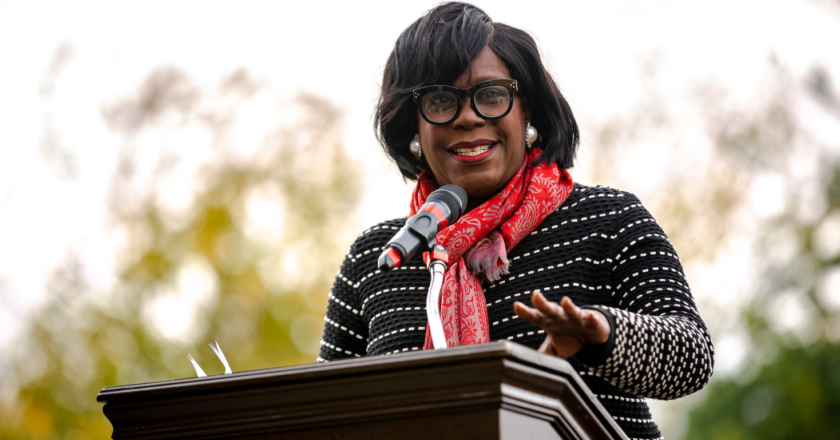On Tuesday, Nov. 7, Cherelle Parker was elected the 100th mayor of Philadelphia, the first woman to ever hold this position. “Thank you Philly!!” said Parker to her Twitter followers. “Our journey doesn’t end here— it’s just the beginning of the work we’ll do together.” Parker won the election with an overwhelming majority, garnering 75.1% of the popular vote. This election marked yet another victory for the Democratic Party in Philadelphia, a city that has historically leaned towards Democrats for about the past 70 years. This political trend has made it increasingly difficult to run as a Republican in the city. “Machine politics’ is probably the best explanation for why Philadelphia has voted Democratic basically since the 1950s,” Upper School history teacher Mr. Robert Moyer said. “Before that, it was strongly Republican from the time of the Civil War.” “Many factors came together after WWII, including corruption in the local Republican Party, growing numbers of African American voters from the Great Migration, shift toward New Deal/progressive programs, support from labor unions and connection to Irish and Italian immigrant groups to switch the machine power from one party to another.” While many in the city are pleased to see Parker step up to the role, others fear that her policies are too polarizing and stray too far from the middle. “Democratic leadership has not done much to improve Philly’s issues in education and security,” Ishaan Paladagu ’25 said. His critique of the Democratic Party is not unlike what Parker’s opponent, Republican David Oh was championing. Both candidates in this election were seen as the underdogs, Parker because of her gender and racial background, and Oh because of his party. “Many kids don’t have parents at home. Many kids have a parent who’s incarcerated for 20 years, and that eats at the soul. And so we have to repair the human being. We have to enrich them, we have to reconnect them. And you can’t do that with a school that is poorly run,” Oh said in an interview with The Inquirer. A major part of Oh’s campaign was focused on bettering the Philadelphia education system. He hoped to win over the hearts of Democratic voters by acknowledging the flawed education system. Oh also sympathized with younger voters and Philadelphia’s children by admitting that he was a troubled child and disengaged student. Nevertheless, this election is yet another testament to the firm grasp that the Democratic Party has over the mayoral seat in Philadelphia. “Never in a million years did I think that this would be a place and a space that I would occupy in this world. I am grateful today for the folks on whose shoulders I stand to get here. I am humble,” Parker said in an interview with NBC. “[Philadelphia will be the] safest, cleanest, and greenest big city in the nation that provides access to economic opportunity for all.” While many argue that the results of this election were already predetermined due to an overwhelming Democratic-voter majority in Philadelphia, there are still many implications of Cherelle Parker’s election, the greatest being a precedent of women of color running for high positions in office. With this new unique perspective in the mayor’s seat, Philly residents can expect to see new policies that will target both sides of the voting spectrum. Because of this shifting precedent, America’s eyes will be looking toward the first female mayor in Philadelphia’s history and how she performs in this major role. Sources:
Philadelphia elects first female mayor in city history

- 4 minute read
No Comments
